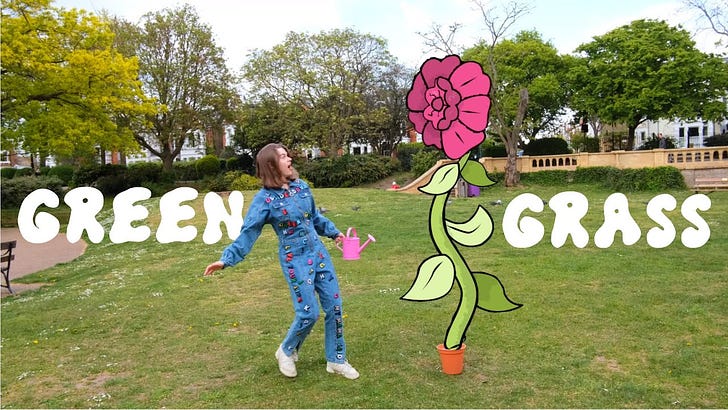Tips for Prolonging Pandemic Family Togetherness
For Many Families, COVID-19 Had a Silver Lining. Here’s How to Preserve The Positives.

Welcome to The Nonlinear Life. In case you missed it, read my introductory post.
Every Friday on The Nonlinear Life we talk about life as we live it today. We explore the urgent and emotional issues at the nexus of family, health, work, and meaning. We call it This Life.
---
A number of years ago, while working on my book about Adam and Eve, I spent a few days in and around London visiting sites associated with the famed poet John Milton. Three things stand out from that trip.
First, how difficult his life was. By his 40s, Milton had buried his mother, his father, two wives, a son, a daughter, countless friends post-hanging, and more than a few post-disemboweling.
Second, he wrote Paradise Lost while completely blind, dictating verses to his daughters.

John Milton, English poet (Paradise Lost) and one of the greatest wordsmiths of all time
Finally, the man invented hundreds of phrases still in popular use. While Shakespeare coined 239 words, Milton coined 630. These included gloom, impassive, dismissive, irksome, self-esteem, didactic, pandemonium, padlock, unhealthy, terrific, fragrance, outer space, self-delusion, jubilant, unconvincing, and perhaps no surprise given his three wives, debauchery, besotted, sensuous, and love-lorn.
He also invented another phrase that seems especially apt: silver lining. Here, from Milton’s 1634 poem Comus, is the first recorded use of the phrase.
Was I deceived, or did a sable cloudTurn forth her silver lining on the night?I did not err; there does a sable cloudTurn forth her silver lining on the night,And casts a gleam over this tufted grove.
I’ve been thinking a lot about silver linings lately, probably because of the pandemic's curious, upside-down effect. While there are certainly aspects of the last year-and-a-half that all of us are eager to forget, I’ve begun hearing sentiments like Gosh, there are certain side effects of the pandemic that I enjoyed, from the slower pace to the reduced commute to spending more time with our pets.
It's almost as if the quarantine, as horrible as it was, had benefits.
With that in mind, I’ve spent the last few weeks asking folks which aspects of the pandemic they most appreciated and how they plan to incorporate them into their lives moving forward. These were the best ideas:
1.Food Takes Center Stage
The most common answer by far was that food took on new joy among families. People told me they had more meals together, shared food-prep more equally, spent a longer time at the table, and even took cooking classes together. Considering Americans rank 33 out of 35 countries when it comes to how many of us make time for family dinner, the pandemic proved to be a boon for a dying tradition.
An old friend told me her newfound commitment to intergenerational family dinner even included relatives who live far away.

“We choose a recipe at least a week before our scheduled Zoom meeting so we all have time to buy the ingredients. Then we cook together in our separate kitchens, chatting while the food is in the oven, enjoying seeing the variety of results. Occasionally someone will keep some in the freezer to share during a future visit. We usually have three or four kitchens participating, but it's still fun with two, and you could probably do more.”
2.House Love
At the peak of the pandemic, almost half the population spent over 18 hours a day in their homes. One surprising upside: Home projects reached an all-time high. Some of these were fun: jigsaw puzzles and card games emerged from the backs of closets.
But people also built closets, and playhouses, and swimming pools. The number 1 pandemic project was gardening, followed by repainting indoors, upgrading the internet, and fixing the lawn. No reason to back off now! So, as the singer Ellie Dixon demonstrated in her charming music video, “Green Grass:” water your plants and be grateful for the life you have.
3.Less Academic Pressure
As the father of two high-schoolers, I can say with confidence the pandemic dealt a welcome blow to what had seemed like ever-rising academic pressures on students. As Ronald Stolberg, the co-author of Teaching Kids to Think, said parents should heed one lesson of the last 18 months and focus on “mental health and self-esteem before grades and other academic expectations.” A reasonable rule of thumb, he added, “is to encourage our kids to do their best until we see them begin to get overwhelmed.”

One side-effect my daughters worried about was the end of snow days. The thinking was that it would be easy for schools to just switch to remote classes until the weather passed. But when I asked the head of their school at a recent [masked, in-person] parent night whether he agreed, he seemed to be following the share Stolberg’s ideology: “No way! Snow days are a tradition—and a fun day off—and kids need those more than ever.”
4.Connect with Adult Children
Perhaps the most abnormal experience for families was that many adult children were forced to move back in with Mom and Dad. And the reaction that many parents had was reminiscent of Sally Field: “You like me! You really like me!” Old-fashioned sports returned: bike rides, Frisbee golf, croquet. Projects took off: Digitizing family movies, purging attics, building victory gardens, collecting family history. There’s no reason some of these events can’t continue today.
“As simple as it sounds,” one person wrote on my Facebook page, “slowing down for daily, deep, authentic conversation about each other’s day. This was something we always did at dinner, then life got hectic with different schedules, causing the dinner together to become nearly obsolete. Along with the separate dinners, the conversations stopped and until we slowed down during the pandemic, we didn’t realize we were each like ships sailing past each other in the night. Simply bringing this back, being still with each other daily, has been life-changing.”

Jennifer Lawrence and Bradley Cooper in the movie adaptation of Silver Linings Playbook
Again, so many of these activities are easy to continue: Set boundaries; coordinate schedules, create new rituals. And in doing so, remember the wisdom of the modern-day Milton: Bradley Cooper, from Silver Linings Playbook: “This is what I believe to be true. You have to do everything you can. You have to work your hardest. And if you do, if you stay positive, then you have a shot at a silver lining.”
☀
Thanks for reading The Nonlinear Life. Please help us grow the community by subscribing, sharing, and commenting below. Also, you can learn more about me, read my introductory post, or scroll through my other posts.
You might enjoy reading these posts:
You're In An Autobiographical Occasion. Now What?
The Three Most Important Words to Say to Someone in a Life Crisis
Or these books: Life Is in the Transitions, The Secrets of Happy Families, and Council of Dads.
Or, you can contact me directly.





